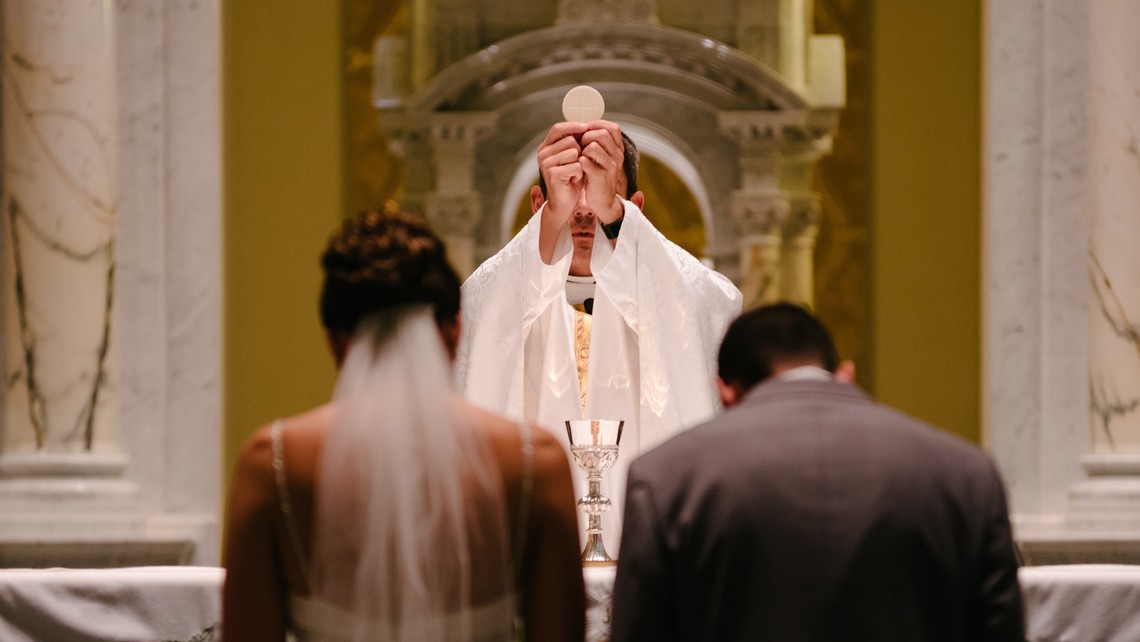
There is a particular song from the British rock band The Who, entitled: Won’t get fooled again, that describes those who resist any form of authority and replace it with their view of authority develop into the same type of authority that was resisted in the first place. The premise of this song derived its identity from the era of the 1960s and the disdain many individuals had for war, government intrusion, moral certitude, and moral living, especially in the areas of human sexuality, marriage, and the sanctity of life itself.
Strangely, whether intentional or not, the premise behind Fiducia Supplicans (FS, 1-2) in the form of a doctrinal declaration proposes a preference for spiritual orthopraxis over doctrinal orthodoxy toward the Church’s instruction on the moral life, human sexuality, and specifically the role of blessings and the conjugal equity inferred between same-sex or heterosexual unions outside of the sacrament of Holy Matrimony.
Though the initial doctrinal thrust of (FS, 31, 33) focused on the conferral of a non-liturgical blessing on a disordered union between individuals of the same sex or irregular unions between a man and woman outside the sacrament of Holy Matrimony; a more important underlying premise behind this declaration is the confirmation of these unions outside of the sacrament of Matrimony that may receive a blessing though not in the same matter, form, or structure of an actual blessing to properly sacramentally married couples.
All blessings aside, from the volumes of commentary that have already been expressed all over the world, and dividing lines drawn for better or worse, the guise of this declaration requires further examination and prayerful discernment. The inference to recognize non-marital unions that are engaged in sexual activity outside the sacrament of Holy Matrimony to be indirectly deemed acceptable and dare I say normal and not disordered does pose both a doctrinal and Christological-anthropological problem.
Under (FS, 31, 38) the proposal to specifically bless unions outside of the matrimonial state appears to be in contradiction to the sanctifying nature of the Church as the Bride of Christ who serves as the recipient of the Bridegroom’s love to be cared for, guarded, and dispense in the name of Jesus Christ and not in the spirit innovation. The moral requisite of chastity, sexual integrity, sacrificial love, marital covenant, indissolubility, and the love of spouse and children appear I argue to be called into question. Anyone directly involved in marriage preparation is probably wondering what all this will translate toward a future understanding of the sanctity of marriage and marriage preparation. All this begs the question; is this declaration needed when the issue of blessing same-sex unions was supposedly settled by the Dicastery for the Doctrine of the Faith in 2021?
Though the need for mercy, forgiveness, acceptance, and respect for the dignity of the human person is paramount as we all share in the distinction of being created in the image and likeness of God, are we not also to seek a turning away from sin those who have strayed from their identity as God’s children? The introduction of this new marital orthopraxis approach at the expense of orthodoxy leaves anyone involved in the formation of couples for marriage in a bit of a ministerial quandary. The Church specifically states that marriage has been part of God’s plan from the very beginning:
Sacred Scripture begins with the creation of man and woman in the image and likeness of God and concludes with a vision of “the wedding-feast of the Lamb.” Scripture speaks throughout of marriage and its “mystery,” its institution and the meaning God has given it, its origin and its end, its various realizations throughout the history of salvation, the difficulties arising from sin and its renewal “in the Lord” in the New Covenant of Christ and the Church (CCC 1602).
The Catechism of the Catholic Church continues the explication of the nature of marriage by emphasizing the vocation of marriage being written in the human heart of every man and woman:
The intimate community of life and love which constitutes the married state has been established by the Creator and endowed by him with its own proper laws.… God himself is the author of marriage.” The vocation to marriage is written in the very nature of man and woman as they came from the hand of the Creator (CCC 1603).
It is important to know and understand that truth is to be respected and properly venerated. Truth does not require any form of innovation because it contains a natural character instituted by God through Jesus Christ who is the truth par excellence (Jn 14:6). We as disciples of Jesus Christ are at the service of Jesus Christ and not in a position to recreate Divine Revelation. Authentic doctrine guides us toward truth, beauty, and goodness not away from it.
As the discussion about Fiducia Supplicans continues, it is prudent that we entrust this tenuous time in our Church to our Blessed Mother Mary, especially under her protective mantle as Our Lady of Seat of Wisdom and Our Lady of Good Counsel. May She guide us towards clarity and charity in service to her Son Jesus Christ.
Remember, O Most gracious Virgin Mary, the never was it known, that anyone who fled to thy protection, implored thy help, or sought thy intercession was left unaided. Inspired by this confidence, I fly unto thee O Virgin of Virgin my Mother, to thee do I come, before thee I stand, sinful and sorrowful. O Mother of the Word Incarnate, despise not my petition but in thy mercy here and answer them.
Amen.






